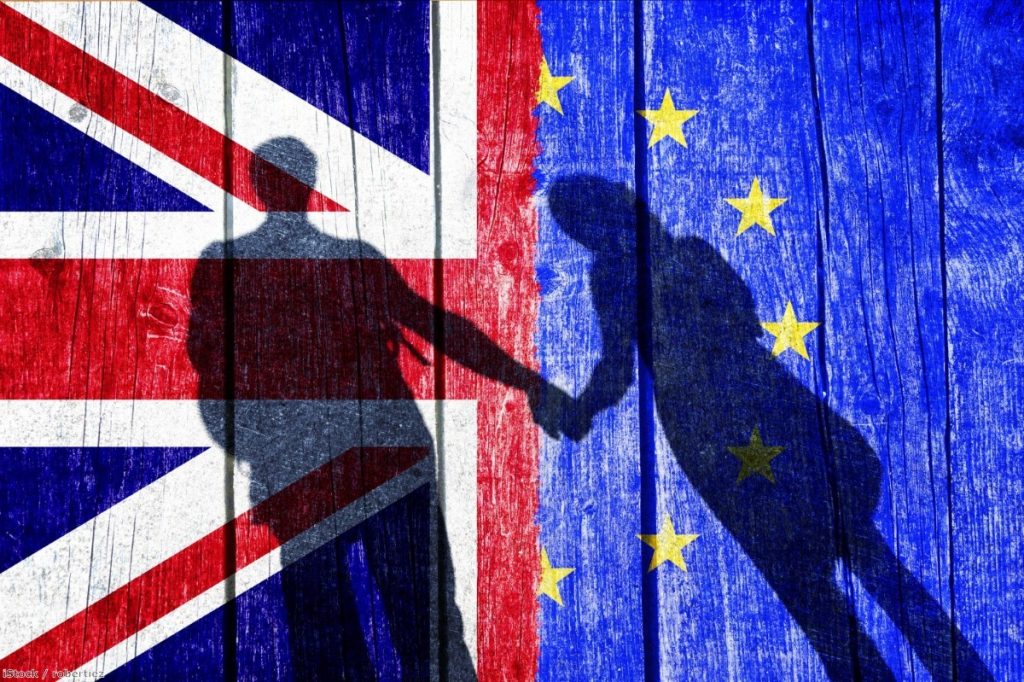By Graeme Richardson
I have spent the last few days in a European city trying to find work, which is kind of a humbling experience. I'm married to an EU national and the issue of leaving the UK was already in the balance when our first child was born in 2014. Then Brexit tipped the scales. Everything our leaders have done since has smashed them to smithereens. So here I am, in a suit so new it might even pass for expensive.
I came here just after Christine Blasey Ford's testimony before US Senators. Like others, I found Brett Kavanaugh's subsequent defence repellent. The contrast between the two speakers was stark. And it made me think. I'm in this city to assert myself, to look 'in command' and seem impressive. That's been my mission throughout my professional life so far. And in pursuit of that, I have sometimes talked across women, not listened, and disregarded contributions.
I have also liked them only if they seem to like or admire me. I have sometimes liked difficult people and found them useful. I have recognised that in any institution you need to value people who ask awkward questions. But when I look back, those difficult people have uniformly been men. I have all my life despised men like Kavanaugh. But I have shared sometimes in the male arrogance he epitomises.


I have also shared in an English arrogance. How we laughed at those visiting German kids, so mild and obedient, wearing stonewashed jeans well into the 90s, with their rucksack-straps on both shoulders. They had none of our punkish swagger. They didn't realise the importance of not giving a damn. They didn't know it was cool to look like you weren't trying. They still sang songs round the campfire. Well – we would say, in our best approximation of Liam Gallagher – Kumbaya you sad bastards. 'Sieg Heil!' as well. Because that was an easy joke too. After all, their niceness and orderliness were why they'd fallen for the Nazis. Unlike us, the buccaneering, devil-may-care English.
Those kids now run the job market I want to enter. It seems remarkably law-based. Everyone seems to have qualifications relevant to their jobs, from waiting staff upwards. Vocational training is obviously highly valued. Jobs are rarely something you ended up doing by accident. Hotel receptionists have degrees in Hospitality. Nursery staff are trained pedagogues. Want to work in HR? You have to have a certification in HR.
Of course, this is all bureaucratic – that great criticism of Brussels – but in a way, it's simply fair. Do we want to promote well-qualified people, or the well-heeled and well-connected? Bluffocracy has, after all, not worked out so well for the UK. And the more you invest in something, the more you value it. Those working in fairly low paid jobs seem to value them more. The place seems cleaner, tidier, with better public transport and better public provision generally.
The solution to male arrogance surely starts with listening. To be better at understanding that communication is a two-way street. Maybe the answer to English arrogance is the same.
Among Remainers, there is general astonishment that Leavers constantly talk as though Brussels can't hear. When Jeremy Hunt compared the EU to the USSR, his Lidl-Trump act did not go unnoticed. But continentals, for a certain sort of English chauvinist, are a bit like women. There's a lot of talk, but it doesn't really mean anything. They have laws and regulations by the bucketful – just like a nagging wife! But the rules don't really mean anything, and we should be free to bend or break them as we want. They won’t understand, because they don't have our wonderful transgressive wit, loved around the globe. Like the wife, they're hopeless with jokes.
In the face of those attitudes, whatever the EU does enrages the Leavers. If they enforce the rules, refusing to compromise the four freedoms, they are humourless bureaucrats, even Soviet goons. If they make a joke, as Tusk did with his cherry-picking jibe on Instagram, we cry foul and beg them to have some respect. No-deal may eventually arrive just because the EU gives up trying to play this stupid rigged game. It's a game some women may recognise.
So I walk around this city, knowing practically now the bravery it takes to be a citizen of nowhere, to be one of those who goes to hustle for their family in a strange land. One recruiter starts to tell me, in perfect English, about the scope of a particular role. I feel desperate to cut across her with a joke, a pun on the words she's just unselfconsciously used. I stop myself just in time.
Graeme Richardson is an Anglican priest and a former chaplain and fellow of Brasenose College, Oxford. He writes on poetry for the Times Literary Supplement and is a contributor to the Oxford Companion to Modern Poetry in English.
The opinions in politics.co.uk's Comment and Analysis section are those of the author and are no reflection of the views of the website or its owners.









